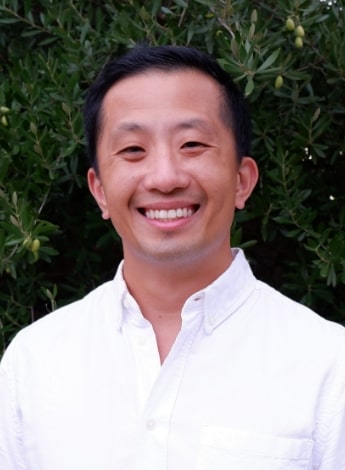
Navigating the post-pandemic landscape

The weight of the COVID-19 pandemic’s impact on physiotherapy private practice landed squarely on the shoulders of managers and leaders as they guided their teams through the shifting landscape. Physiotherapy practice owner Greg Goh says that with lockdowns and restrictions easing, now is the time to reflect on the lessons learned and plan for the future.
Business owners and leaders have recently faced one of the toughest challenges in any leadership journey—the ‘once in a lifetime’ COVID-19 pandemic.
It has been a roller-coaster ride for so many.
We’ve been madly deciphering state COVID-19 restrictions, making sure that the practice meets all the government mandates, surviving multiple lockdowns, cancelling and rebooking full lists of patients when physiotherapists are sick or have to isolate, keeping our team safe and employed and dealing with a myriad of other issues—all while trying to keep the practice doors open.
Leading through the pandemic has required a series of reactionary pivots and it’s been hard to do much more than keep our heads above water.
But as some stability returns and we dare to take a breath, the question arises—what now?
Before jumping straight back into vision casting, goal setting and rallying your team, this might be an opportune time to reorientate and recalibrate.
This will help shift your perspective from reactionary to intentionally leading and will provide a solid foundation for building up your practice in the post-COVID-19 landscape.
Practice owner reboot
When a violin bow is left under tension for too long, it can weaken and become damaged.
That is why it is good practice to loosen the bow after each use.
In the same way, whether you have noticed it or not, practice owners and managers have all been stretched and put under tension in our leadership capacity over the past few years.
A prolonged period of tension (or low-grade stress) can weaken and erode our effectiveness both personally and professionally and, if left unaddressed, can increase the chances of burnout.
Recalibrating yourself requires introspection.
Consider where you are now (physically, mentally and emotionally) and create a plan for how you can release some of the tension and give your body and mind the rest they need (eg, by doing things outside of work that give you energy and joy).
The following questions may help with recalibrating:
- When was the last time you had a proper break? Were you completely unplugged from work, including email?
- How would you rate your energy levels this week? Do you wake up refreshed or fatigued and needing a shot of caffeine?
- When was the last time you did something fun that was not work-related?
- Do you overall have less patience or tolerance for those around you? Do things that didn’t use to bother you much now push you over the edge?
If you find any of these questions challenging, then perhaps it’s a sign that you need to release some tension in your bow. Being the best leader for your team and practice requires you to take care of yourself first.
Your team
Your team has also experienced a prolonged period of increased tension due to COVID-19 over the past few years.
They’ve been dealing with the stress of the unknown, of job insecurity (real or imagined), of changed hours and/or responsibilities and of keeping their loved ones safe while still trying to deliver the best treatment and service for their patients.
Your team needs an opportunity to reorientate and recalibrate too and leaders can help facilitate this by providing clarity and purpose.
Providing clarity requires good listening and giving your team the space to express how they are feeling physically, mentally and emotionally.
Only by understanding your team’s current state can you help guide them to where you want to go as a practice.
This requires a level of trust and safety.
You can do this as a group during a team meeting or in one-on-one mentoring sessions.
Below are some questions to help you:
- How would you rate your physical, mental and emotional health now?
- What can we as a practice do to help you increase your ratings in any of these areas?
- Is there anything work-related that you think has been positive during COVID-19?
- In light of what we’ve experienced during COVID-19, what should we as a practice start doing, keep doing or stop doing?

Physiotherapist and leadership consultant Greg Goh urges managers and leaders to focus on recalibration.
Once you have a clear picture of the condition of your team, you need to set the stage for a new purpose.
You don’t have to have the full plan mapped out but articulating the next steps will give your team the reassurance and support needed to ease their tension through this transitional period.
Prolonged uncertainty leads to a feeling of being adrift, so helping your team renew their purpose will increase their experience of control over their life.
This should be done as a team and should be applicable to all (physiotherapists and administration staff alike) so that everyone can relate to it.
Look for some quick ‘purpose wins’ to start building momentum and excitement.
Intentionally stopping to reorientate and recalibrate yourself and your team allows everyone to wind down and reflect on what they’ve experienced and learnt in recent years.
This will give you a solid foundation on which to start vision casting and planning your practice’s next steps.
It is important to take what you learned during the pandemic and use it to come back stronger and better as a leader for your team and your practice.
>> Greg Goh APAM is an experienced physiotherapist with a private practice, Back In Motion, in Mount Barker, South Australia. Greg is also a leadership consultant and is passionate about developing the next generation of leaders within the healthcare industry.
© Copyright 2024 by Australian Physiotherapy Association. All rights reserved.





